How to Trade Futures: A Beginners Guide Explained By An Expert
By Wilbert S
January 10, 2024 • Fact checked by Dumb Little Man
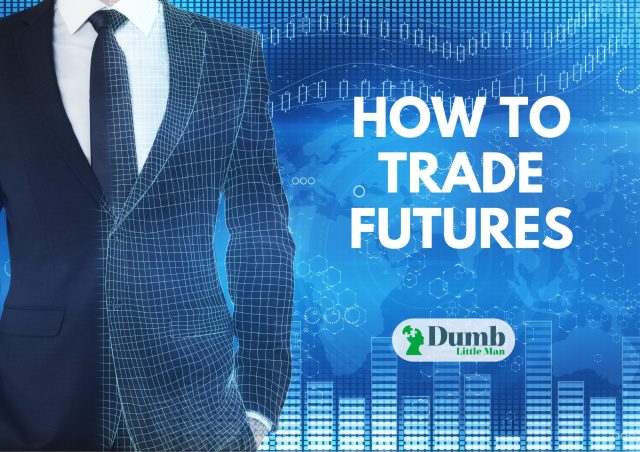
Want to jump straight to the answer? The best forex broker for traders is Avatrade
The #1 Forex Trading Course is Asia Forex Mentor
Of the many trading opportunities, trading futures fall among the key thriving forms. So they go to add on Forex, commodities, and stocks. And there’s also a growing opportunity with crypto-futures. One great thing with futures trading is – your skills in trading apply equally. So if you are a Forex trader, you need to fine-tune a strategy and get into the futures markets.
A huge quagmire that traders face is laying their hands on credible and reliable information to help trade futures successfully. This post will walk you through the path to trading futures under the leadership of Ezekiel Chew. He has expertise combining more than twenty years of trading the markets through chart analysis and ROI-based models.
This post is part of an effort by Ezekiel Chew to share credible information and as a way of giving back to society for willing-to-learn aspiring traders. Therefore, over and above covering the basics regarding futures trading, there’s a key orientation targeting beginners.
Towards the end is an into detail exposure of where else you can explore to find credible trading information. To wrap up everything, you’ll find expert answers to two significant questions that beginners grapple with in line with futures trading: safety and profitability.
How to Trade Futures for Beginners
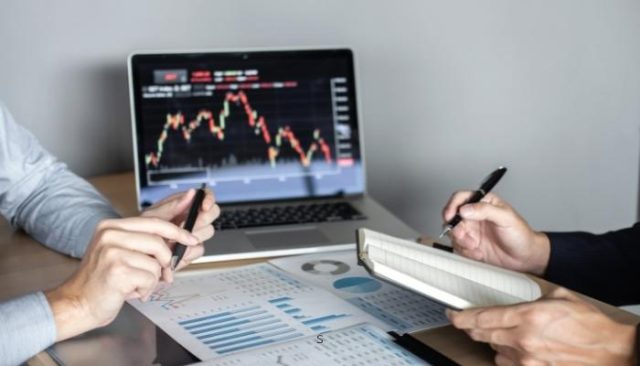
Oftentimes, futures are a term that presents traders with a hard time trying to define.
Therefore, to make things extra clear, here are two key things with a futures contract:
#1. It’s an agreement, or we can also say it’s a promise to either buy or sell
#2. With two certain or pre-defined variables: the price and the date
This far, you can get two things very clear – the futures markets and contracts are very speculative in their nature. And due to the openness of markets, traders can virtually tie and transact anything in the ambit of a futures contract.
To list but a few, futures contracts may involve the exchange of:
- Exchange-Traded Funds or ETFs
- Crypto-assets( Coins or tokens)
- Agricultural commodities like mangoes, ground nuts, coffee, and Cocoa.
- Metallic commodity futures like gold and copper
And the above list can be so long. The working models with futures contracts involve trading via an exchange. The binding contract involves one party agreeing to purchase a certain amount or quantity of a security or a commodity. Consequently, the counter-party must fulfill part of the bargain to deliver the commodity at the pre-set price and time.
If you may ask, the actors in the futures markets comprise financial firms with huge investors and speculators who are incorporated, and their aim is to provide for the physical delivery of the commodities or make the supply.
Differences Between a Futures and an Options Contract
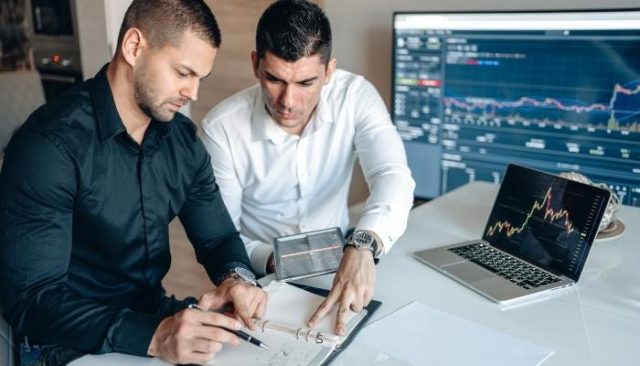
As part of building the basic knowledge, traders should best know the differences between the futures and options in the scope of a derivative financial instrument.
On a plane of similarity, futures and options contracts involve the contractual obligations with parties making commitments to buy/sell target assets or security after a set figure in price and on a set date in the future.
However, the key distinction that comes into focus is the form of obligations each takes. To be very clear, futures contracts come with a compulsory obligation to exercise the respective contractual engagements – buy or sell.
Conversely, the options contracts do not provide a binding obligation. Therefore, parties can either exercise or forfeit the rights in line with the contractual obligations.
How Futures Works
For a more in-depth comprehension of how the futures markets work, we’ll go deeper to see the two types of traders who form the participants in the market. The first type of participants is the hedgers, and the second type is the speculators.
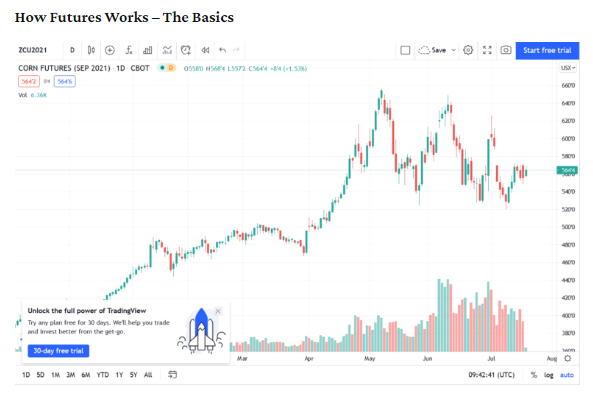
Conceptually, the idea of futures is to tie or secure prices of the commodities or underlying assets. And the concept’s inception has huge to borrow from the hedging traders whose aims are the stability and predictability of the prices across their businesses.
A practical example of Futures Trading Contracts in action
We’ll take a scenario of a large-scale farmer who has a plantation of mangoes. And due to a large amount of production potential, the farmer is thinking about the fluctuation of prices – more so in the future when the product is due.
Assuming the mangoes go at $2 for a pack, the worry is that when the supply spikes up, the high supply may push prices lower to $1.5 a pack. Therefore, four months (specified date) before the prices make a certain dip. The farmer becomes a hedger who looks out to lock the price at the preferential rate of $2 a pack. Therefore, the farmer takes advantage of a futures contract to lock the expected amount (predetermined price) of the dip in prices – $ 0.5 a pack. Overall, it can be a huge amount, especially when accounted for in light of the economics of scale.
The best bet the farmer can take is to sell short some futures contracts – whose expiry timelines coincide with the four months when the dip in prices will take effect. The essence of selling or taking a short position is to take advantage of the lower shift in the market prices.
In reality, when the prices dive due to the oversupply of mangoes, the farmer with a hedging contract is already covered. The income from the selling of the futures contracts will plug in to help cover the losses with the dip in the price of the mangoes.
We’ll look at the same commodity of mangoes but with different actors in the scenarios:
A chain of supermarkets selling the mangoes worries that the prices of stocking the mangoes will increase in the near future. An increase in prices affects the supply chains, making the stocking process more expensive as cost absorptions are pushed across the chain to be eventually shouldered by retail buyers.
The supply chain management takes a counter move to cover the impending hike in prices. They seek to capture and benefit from the current low price by acquiring more stocks while the prices are still at the current low prices.
In a nutshell, if you look at the two scenarios above, the mangoes farmer and the supply chain management fall into a cohort of hedgers. They seek to benefit from the market’s price fluctuations by exploiting futures contracts on a not-for-profit model.
Conversely, the speculators have a target to profit from the price fluctuations, and in this case, they do not own nor have any business with the underlying assets. So speculators are purely on a for-profit basis while they tackle exploring futures contracts.
Some of the key advantages why the futures trading markets hook many speculators are:
- High volatility of the prices, which results in fast price movements
- Highly liquid markets with many actors and platforms offering low margins for traders to enter the futures trading contracts markets.
Therefore, in reality, most speculators do not own the assets they speculate upon. Also, they do not require ownership of the assets to benefit from them. And due to the lack of obligation to physically own the assets, traders/speculators will usually close out the positions in time before the expiry of the delivery dates – all they require is to profit from the predictions in price movements per the underlying asset.
How to Trade Futures – Reddit’s Advice
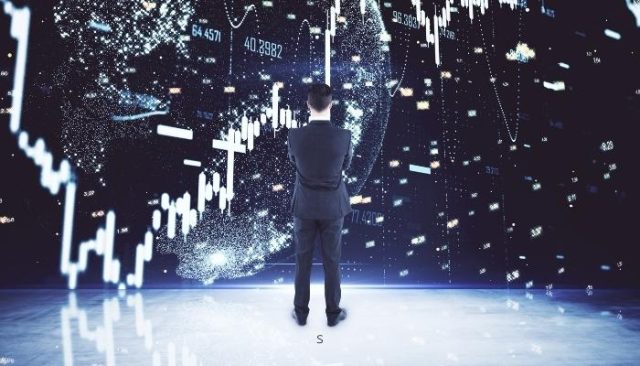
It sounds a bit awkward, but it’s the truth. You can learn trading skills and apply them for trading and profiting from futures contracts. However, on the modern-day internet, you can sift useful stuff from any platform. While we agree there’s too much content out there, a trader can roll up their sleeves and make it their business to sift for the nuggets of knowledge that are beneficial.
One undisputable point with the internet is its unselfishness with helpful information. Redditers point out that according to Robinhood, the process of trading futures is a standard across platforms – with an easy-to-onboard process. It starts with pointing to one broker of choice – one with the best deals than others in the marketplace. Your starting platforms are the likes of Webull and Schwab.
Whoever you choose as a broker requires you to provide your information as part of the account opening process. Futures trading platforms are keen to interview your current status to help them figure out if you can fit into the categories of futures traders’ risk profiles. On most occasions, the basis for the profiling starts with the prospective incomes and their networks.
Across the board, the industry has no set standards for commissions or fee structures set for the traders and their profiles. Also, the same goes for the services the broker offer as part of the package. Some brokers help you onboard with massive resources and tips. Others may not offer much at all, apart from the quotes and charts, and they believe you are good to go.
From other circles, Binance shares that the best way to learn the ropes of how to trade futures is to start with a risk-free demo account. And to lay more emphasis, demo accounts play a huge role in building the basic skills in trading, like confidence with a trading platform.
Starting with the virtual balance helps traders create long exposures and an eventual grasp of the features a trading platform provides. And demos are not meant for newbies only. In fact, experts work with demo accounts to test strategies and compare them with regard to metrics like profitability, win rates, and risk-reward ratios.
| Broker | Best For | More Details |
|---|---|---|
 |
| securely through Robinhood website |
| Broker | Best For | More Details |
|---|---|---|
 |
| securely through Binance website |
How to Make Money in the Futures Market
One key reason why the futures market attracts speculators is the ability to allow huge control of assets at very high amounts – even in instances where they do not own the assets physically.
Practical Example of Speculators benefiting from an asset they do not own
Our example takes on corn futures in the market. Making an assumption that it costs$2000 for one corn futures contract. The initial cost here is the margin – or the amount you have to deposit in a futures account to take on a position.
The other significant variable a futures trader needs to bear in mind is the maintenance margin – which is the effective balance or the minimum equity a trader needs to hold in the account. In case the account balance falls below the maintenance margin trading privileges subject require depositing more to meet the minimum requirements set.
In finer detail, one corn future comprises 5,000 bushels. At a retail price of $4, in total worth, we’ll amount to (4X5, 000.00) $20,000.00. A speculator can trade futures with $1,500, an amount less than 10% of what they control ($20,000.00). However, it’s best to stay on the safe side by maintaining higher amounts in the trading account to cater to both initial and maintenance margins. It’s a sure way to keep away margin calls even when prices shoot in an adverse direction due to market conditions.
In an extremely adverse position, margin calls consume the capital in an account due to cash settlement for the financial contracts. Intra-day traders may be a bit lucky if they take the opportunity with small margins as they close trades daily.
The other angle is to be keen on the different exchanges and online brokers as they offer varying rates for margin. No standard rates are set by the commodity futures trading commission for any brokerage account. Some brokers change the margin rates with respect to the prevailing variables of volatility at any moment. Therefore, when prices experience high market volatility, brokers are likely to translate that into higher frequencies of hikes and dips in the rates.
The ideal way to work with margin rates and exchange fees is by shopping around the brokers and exchanges to get the lowest offers. In a deeper context, volatility depends on the inflections of how far prices move within timeframes.
Lastly, the process of trading futures is similar across all nationalities. Therefore, a crypto-futures trader in Canada will follow a similar process as a futures trader in the USA.
Best Forex Trading Course
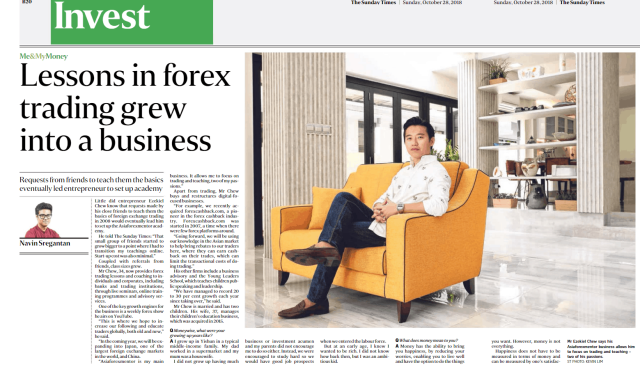
The best Forex trading course is the One Core Program from Asia Forex Mentor. Many traders turn around their trading careers fortunes by taking the course. One Core Program helps traders to upskill with the key but missing trading ingredients for lifelong and profitable trading in futures contract.
One Core program transforms you into a 6 figures profit-taking trader with a confident and proven model. Your approach to markets aims at picking a few trades with high chances of winning while protecting your capital for future trading.
Lastly, One Core Program is an award-winning course – that has helped thousands of retail traders and large assets institutions, including banks and trading corporations. It’s a holistic approach that builds on the pillars of analytical, low-risk, and mentorship exposure that most traders miss from other courses.
| RECOMMENDED TRADING COURSE | REVIEW | VISIT |
|---|---|---|
 | #1 Forex, Crypto and Stocks trading course. Ranked most comprehensive by Investopedia and Best by Benzinga. Free to Try! |  |
Best Forex Brokers
| Broker | Best For | More Details |
|---|---|---|
 |
| securely through Avatrade website |
| Broker | Best For | More Details |
|---|---|---|
| securely through FXCC website |
Conclusion: How to Start Trading Futures Products
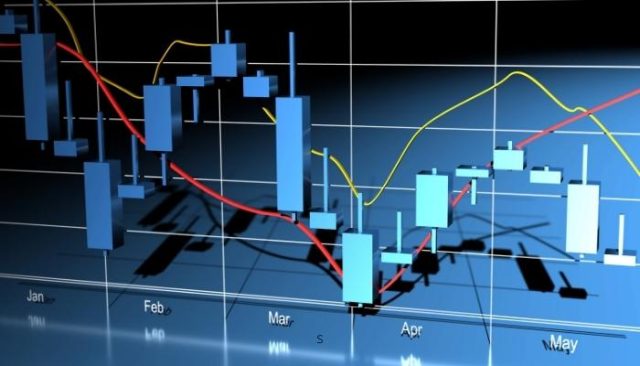
As you can see, there are numerous opportunities with a variety of assets and securities to target and launch your futures trading career. As a disclaimer, the investment advice given here is not suitable for all investors due to substantial risk with futures trades. You can start with the most common ones, like crude oil. While it’s a lucrative venture, it requires more in-depth approaches via technical analysis than our post exposes here.
While we are in concurrence that the information you can find online is immensely beneficial, the applicability varies with an individual trader’s experiences. For many, it’s never a simple walk in the park. Therefore, the best option is to take a credible course with a mentor to help evaluate your progress by pointing out the experiential pitfalls once you start trading futures.
More so, it also varies with the learning curves – some traders are super-fast in grasping the futures trade, and others are very slow but sure. The approach with a demo account is quite essential, enabling traders to see live aspects within a risk-free scenario in the course of learning to trade futures contracts. The benefit of a good course includes the opportunity to cascade your knowledge into other opportunities – other than trading futures contracts with market moves.
How to Trade Futures FAQs
Is it Profitable to trade futures?
Yes, trading futures is a profitable venture for a trader with all the basics right, plus best if they are experts with proven investment strategy. The good thing is that aspiring traders can work on their skills and risk tolerance to end up with a strategy that increases the odds of consistent profitability with futures accounts.
Is it safe to trade futures?
It’s safe to trade futures with all the good rules of capital protection and in depth research
put on the table before trading activity. And they include taking a contract that’s initial and maintenance margins you are able to hold comfortably in a futures trade. Of course, working with a broker with good offers for margin rates is also another big plus.
Wilbert S
Wilbert is an avid researcher and is deeply passionate about finance and health. When he's not working, he writes research and review articles by doing a thorough analysis on the products based on personal experience, user reviews and feedbacks from forums, quora, reddit, trustpilot amongst others.













